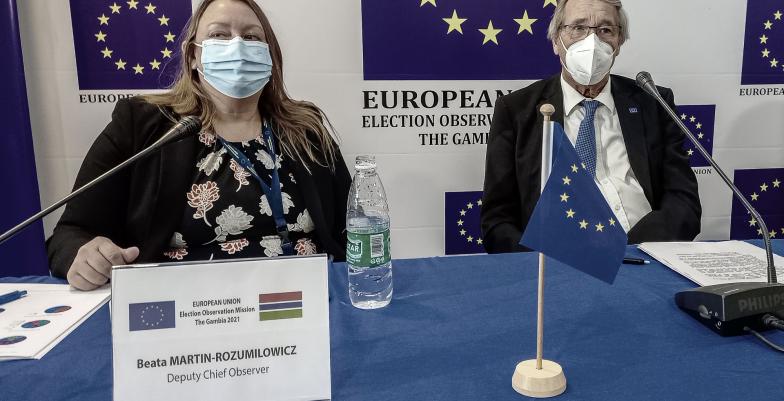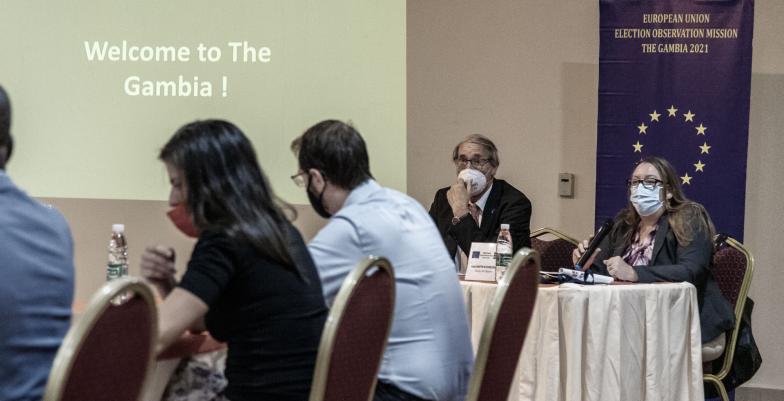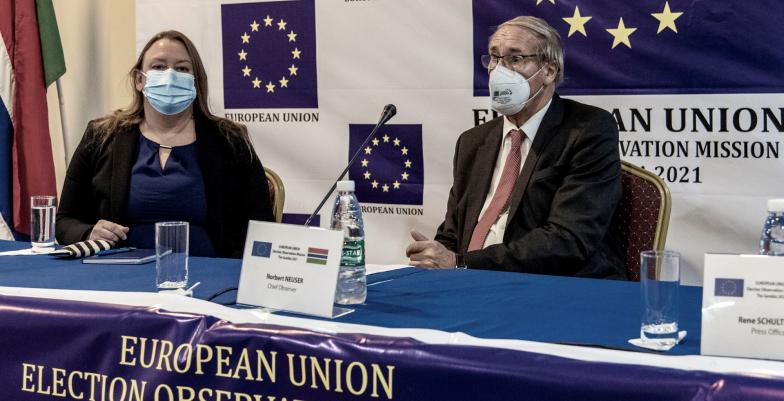About the Mission
The EU EOM will assess the presidential election in line with The Gambia’s legal framework as well as with international standards and commitments it has made regarding democratic elections. The EU EOM does not interfere in any way in the electoral process. It provides an informed, comprehensive, and impartial analysis of the entire electoral process in line with established EU methodology. The EU EOM operates in accordance with the Declaration of Principles for International Election Observation, adopted at the United Nations in 2005, and now endorsed more than 50 international organizations involved in election observation.
The EU EOM applies an established methodology for observing elections. EU EOMs do not offer advice and assistance or in any way interfere in the electoral process. The EU EOM does not legitimise the electoral process nor validate the election results. It has a mandate to observe, collect and analyse information concerning the election process and to ensure that all findings and conclusions are based on carefully verified factual information.
On election day, each team of EU observers visits several different polling stations. To ensure the consistency of election day observation, EU observer teams use standard reporting forms. The main objectives of election observation are to make recommendations to help improve future electoral processes, to support the democratic process in partner countries and strengthen respect for human rights and the rule of law.
The methodology is based on long-term observation, through which the EU EOM’s experts analyse all aspects of the electoral process, including the legal framework and its implementation, the political context, the performance of the election administration, the role of state and other institutions, voter registration, campaign activities, the overall environment of the elections, including respect for fundamental freedoms, civil and political rights, access to and conduct of the media, the role of civil society, the voting, counting and transmission of results, the complaints or appeals process as well as the announcement of results.
A core team of election experts and specialists was deployed to Banjul on 27 October to follow and analyse the election process. On 07 November the EU EOM will deploy 16 long-term observers (LTOs) to cover all the counties in The Gambia. Shortly before election day, the mission will be reinforced by another 16 short-term observers (STOs), who join to observe election day activities at the polling stations. LTOs and STOs will also be joined by 7 Members of the European Parliament.
The EU EOM’s assessment of the electoral process is independent of any EU institution and member state. Its purpose is to offer a comprehensive and impartial assessment of the electoral process and its compliance with The Gambia’s legal framework and international commitments. EU observers adhere to a Code of Conduct which obliges them to maintain strict impartiality and neutrality, and to abide by Gambian law.
A preliminary statement on the findings of the mission is issued shortly after election day. This statement, presented by the Chief Observer at a press conference in Banjul, outlines the EU EOM’s initial assessment prior to the completion of the electoral process. A comprehensive final report, with recommendations for improving future elections, will be published some two months later.
The Core Team of the EU EOM The Gambia 2021 consists of 10 election experts and specialists including the Chief Observer and Deputy Chief Observer. The whole team is looking forward to a professional and respectful cooperation during the period of our stay in The Gambia.








